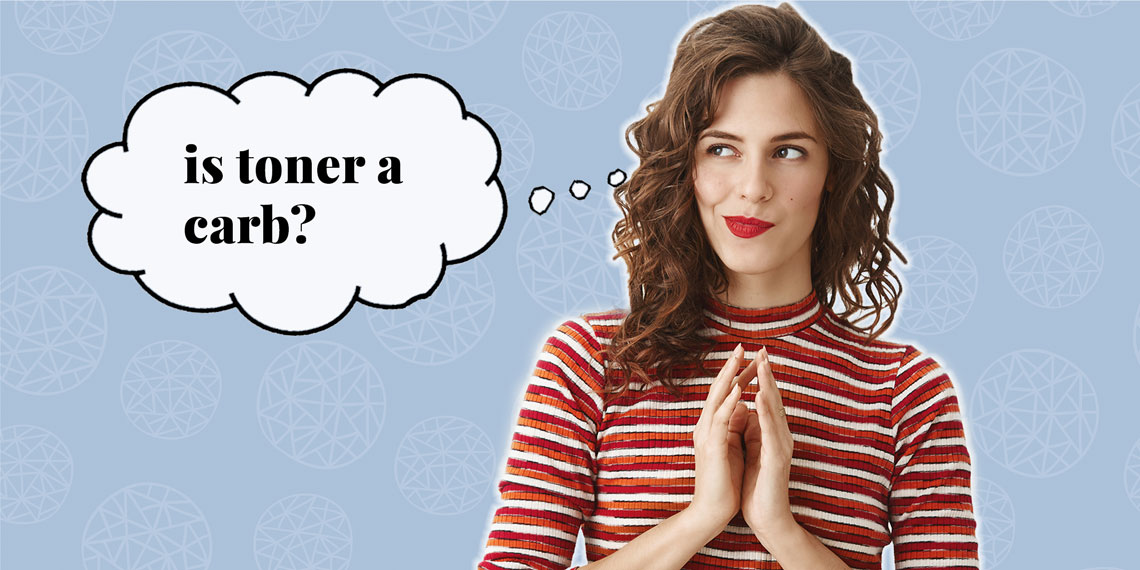Let me start off by saying that I am not a skincare expert. I am just a 24-year-old human woman. One who discovered six months ago that my college skin care routine (“washing most nights, probably”) was no longer going to cut it. I’m lucky enough not to deal with serious acne. But all the “minor” concerns (dullness, dryness, redness, inexplicable bumpiness)? You bet. SO, I did what all good shopaholics journalists do best: research. I went into a very deep, surprisingly Korean internet blackhole, and emerged with a four-step skincare routine. Cleanser, toner, serum, moisturizer. Duh. Of all these steps, toner was the one I resisted most—and the one I still find most confusing. Since I’m sure I’m not alone in this, I’ve written up my findings on this v important topic. What is toner, why do we all apparently need it, and which one is best? Please enjoy.
What Is Toner?
First and foremost, toner is very different than it used to be. The toner I remember from high school was glorified rubbing alcohol prescribed by particularly vindictive dermatologists. But today’s toners are so much more. A good toner can help you even out texture and tone (duh), shrink the appearance of pores, and leave your skin super soft and glowing. To get technical, one skin care specialist describes toner as a way to “complete the cleansing of your skin.” Apparently, cleansers “can leave a film on your face” that toner strips off. Which really makes me question why I’m using cleanser in the first place, but k.
If you want a buzzier description of what toner does, Allure describes it as “a fast-penetrating liquid that delivers skin a quick hit of hydration and helps remove some dead cells off the surface of the skin.” (Seriously, are cleansers removing anything?) And in case I have any toner nerds in the comments, I’ll also mention toner’s effects on pH level. Apparently, a good toner functions by resetting your skin’s natural acidic pH. You can read more here, or just trust me that it means you’ll look good and resist more bacteria. Two equally sexy goals, am I right?
Finally, what is toner actually made of? The general answer is water, plus some combination of acids, glycerin, essential oils, plant extracts, and more. Kewl. Some toners still contain alcohol, but it’s not recommended unless oil is your main problem.
TL;DR: Toners are a water-based product will give you a more thorough cleanse, prep your skin to absorb your moisturizing products, and overall improve skin’s appearance and texture over time.

How Do I Use It?
You should think of toner as a chaser for your cleanser and a primer for your serum/moisturizer. If you’re particularly anal, you should apply toner no more than 60 seconds after cleansing. Apparently, that’s when your skin will absorb it best. After, you apply any serums/moisturizers/eye creams. My favorite explanation for how this works is given by Charlotte Cho, co-founder of Soko Glam. “Your skin is like a dried-up sponge,” she says (adds up). “If you put thick cream on a brittle dry sponge, it won’t accept it.” If this doesn’t make you spiral into self-doubt about every time you’ve put $70 moisturizer on your bone-dry face, congratulations. Can’t say the same.
As for like, how do you literally put it on your face—you have two options. You can read the instructions on the bottle (some recommend cotton pads while others say to use your fingers). Or you can really make a day of it and attempt to follow the K-beauty “7 Skin Method.” I’d make a joke here about “who has the time for that,” but I watched a full season of American’s Next Top Model last weekend. I have the time for that.
https://www.instagram.com/p/BPeHBr7AyPl/?utm_source=ig_embed[/embed]
Okay, What Kind Of Toner Should I Buy?
Now you’re asking the important questions. The answer, of course, depends on your skin type. Generally speaking, Korean brands like Soko Glam will have great options, because their toner never went through the gross alcohol phase that American toners did. But beyond that, you should figure out your skin’s needs (or see a dermatologist to find out) and pick ingredients based off that.
For sensitive skin, chamomile, aloe vera, and amino acids all help calm/soothe. Some good picks include Mizon Intensive Skin Barrier Emulsion and Exuviance Soothing Toning Lotion. For oily skin, alcohol will help kill oil and shine, but so does witch hazel—and the latter is less drying. Belif Witch Hazel Herbal Extract Toner is my personal fave, and Pixi by Petra Glow Tonic is another beloved one on the market. For dry skin, glycerin, essential oils, and rosewater are all key hydrating ingredients. Try the Klairs Supple Preparation Facial Toner or Caudalie Beauty Elixir. For dull, uneven skin, try Son & Park Beauty Water, which has both exfoliating and hydrating properties.
Oh, and whatever you do, stop buying Neutrogena toner. I usually love Neutrogena, but their crazy-drying alcoholic toners (yes, even and especially the “Alcohol-Free” toner) are the reason it took me so long to come around to real toner. I used that shit for two weeks and I may as well have been washing my face in Svedka. If you need any further convincing, take a look at their spokesperson. I rest my case.

That’s all the wisdom I have today! But my recent skincare tear is showing no signs of stopping, so stay tuned for upcoming reviews of dermarolling, Hanacure, and how to file for bankruptcy when you’ve spent all your money on Korean beauty products.
Images: Giphy (2); sarah_glow / Instagram
Betches may receive a portion of revenue if you click a link in this article and buy a product or service. The links are independently placed and do not influence editorial content.







































